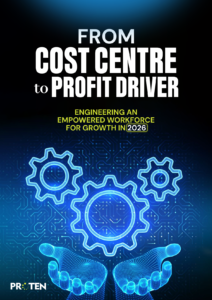In the ever-evolving landscape of the modern workforce, a new breed of job is rapidly gaining prominence—the new-collar job. This category of employment represents a departure from the traditional academic path, offering highly skilled, high-paying opportunities that don’t require a four-year college degree. As technology continues to disrupt industries and reshape the job market, the new collar job is emerging as a beacon of opportunity for those seeking fulfilling and lucrative careers.
The term “new collar” was coined to describe a segment of the workforce that possesses the technical skills and problem-solving abilities required to excel in the modern economy, but without the traditional academic credentials. These individuals are often self-taught or have acquired their skills through vocational training, online courses, or on-the-job experience.
The rise of the new collar job is a direct response to the changing needs of businesses. As technology becomes increasingly sophisticated, companies are searching for workers who can adapt quickly to new tools and processes. Traditional college degrees, while valuable, may not always equip individuals with the specific skills required for these in-demand roles.
The new collar job market is not only expanding but also offering lucrative opportunities. Many of these positions come with competitive salaries and benefits, making them attractive to a wide range of job seekers. Moreover, the new collar economy often provides opportunities for career advancement and professional growth.
In this article, we will delve into the factors driving the new collar revolution, explore the key characteristics of these jobs, and discuss the challenges and opportunities they present. We will also examine the future of the new collar landscape and how it may continue to shape the workforce.
Drivers of the New Collar Revolution
Several factors are contributing to the rise of the new-collar job market. One of the most significant is the rapid technological advancements taking place across industries. From automation and artificial intelligence to cloud computing and data analytics, technology is transforming the way businesses operate and creating a demand for workers with specialized technical skills.
Another driver is the increasing cost of higher education. As tuition fees continue to rise, many individuals are finding it difficult to justify the expense of a traditional college degree. The new collar job market offers a viable alternative for those seeking high-paying careers without the burden of student loan debt.
Additionally, the skills gap is widening. Many businesses are struggling to find qualified candidates to fill technical roles. This shortage of talent is creating opportunities for individuals who possess the necessary skills, regardless of their educational background.
The new collar revolution is also being fueled by a shift in societal attitudes toward education and career paths. In the past, a college degree was often seen as the only path to success. However, as the job market evolves, people are becoming more open to alternative pathways and recognizing the value of practical skills.
Key Characteristics of New Collar Jobs
New-collar jobs share several common characteristics. First, they require specialized technical skills. These skills may include coding, data analysis, cybersecurity, artificial intelligence, or other areas of technology.
Second, new-collar jobs often involve problem-solving and critical thinking. Employees in these roles are expected to be able to analyze complex problems and develop innovative solutions.
Third, new-collar jobs typically offer opportunities for continuous learning and development. As technology evolves, workers in these positions must stay up-to-date with the latest trends and best practices.
Fourth, new-collar jobs often provide a high degree of autonomy and flexibility. Employees in these roles may have a significant amount of control over their work and may be able to work remotely or on a flexible schedule.
Finally, new collar jobs can be highly rewarding both financially and professionally. Many of these positions offer competitive salaries and benefits, as well as opportunities for career advancement.
Challenges and Opportunities
While the new collar job market offers many opportunities, it also presents challenges. One of the biggest challenges is the competition for these positions. As the demand for new collar workers increases, so does the competition for available jobs.
Another challenge is the need for continuous learning. Technology is constantly evolving, and new-collar workers must stay up-to-date with the latest trends and best practices. This can be time-consuming and require significant effort.
Despite these challenges, the new collar job market offers many opportunities for individuals who are willing to invest in their skills and education. These jobs can provide a stable income, career advancement, and a fulfilling work experience.
The Future of the New Collar Landscape
The future of the new collar landscape is bright. As technology continues to advance, the demand for workers with specialized technical skills will only increase. This will create more opportunities for individuals who are willing to acquire the necessary skills and knowledge.
In addition, the new collar job market is likely to become even more diverse. As more people recognize the value of alternative pathways to success, we can expect to see a wider range of backgrounds and experiences represented in these roles.
The future of the new collar landscape also depends on the ability of educational institutions and businesses to adapt to the changing needs of the workforce. By providing access to affordable, high-quality training programs and creating opportunities for on-the-job learning, we can help ensure that everyone has a chance to benefit from the new-collar economy.
Final Thoughts…
The new-collar job market is a rapidly growing segment of the modern workforce. These highly skilled, high-paying positions offer a valuable alternative to traditional college degrees and provide opportunities for individuals who are willing to invest in their skills and education.
As technology continues to disrupt industries and reshape the job market, the new collar job will become even more important. By understanding the drivers of this revolution, the key characteristics of these jobs, and the challenges and opportunities they present, we can better prepare ourselves for the future of work.











